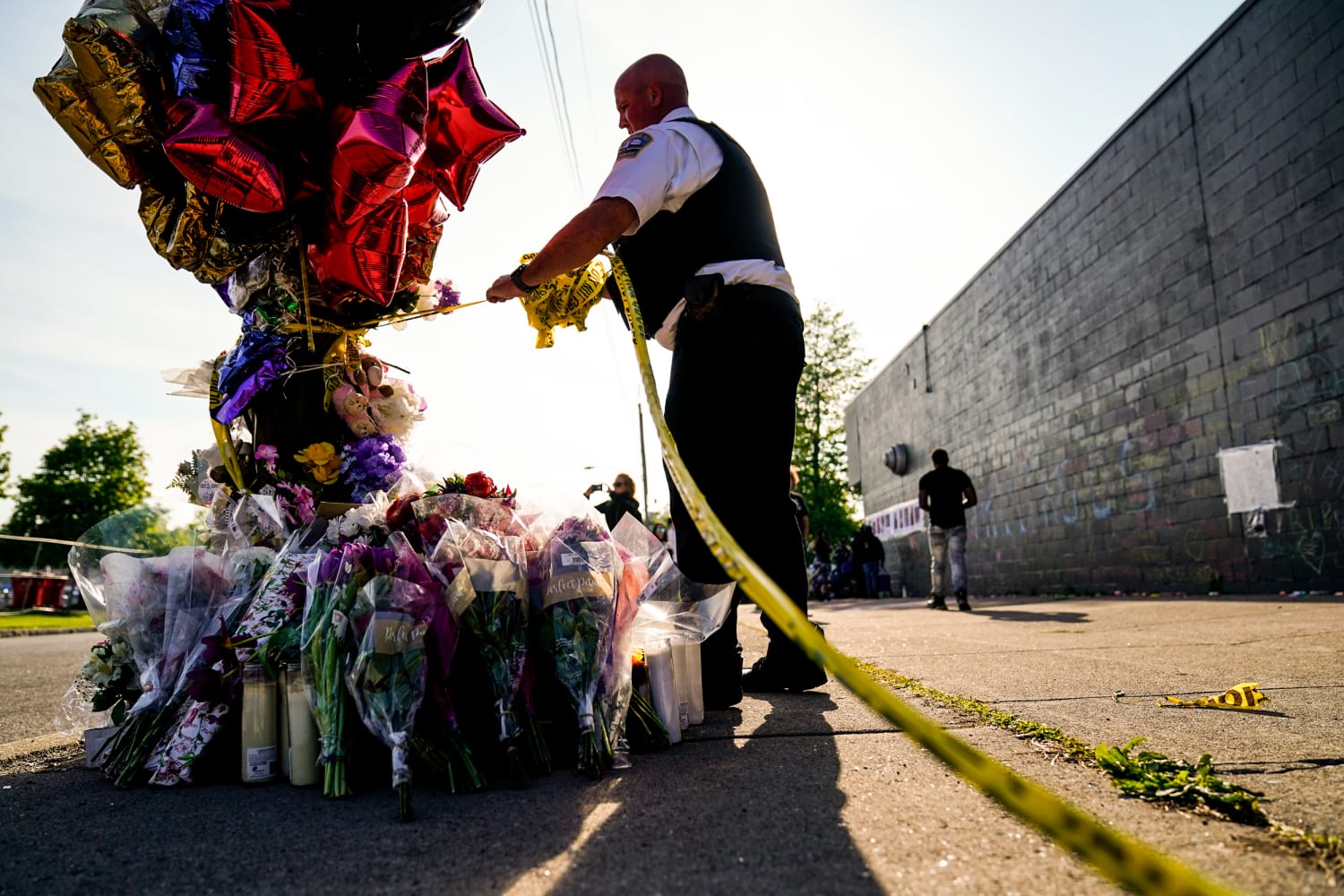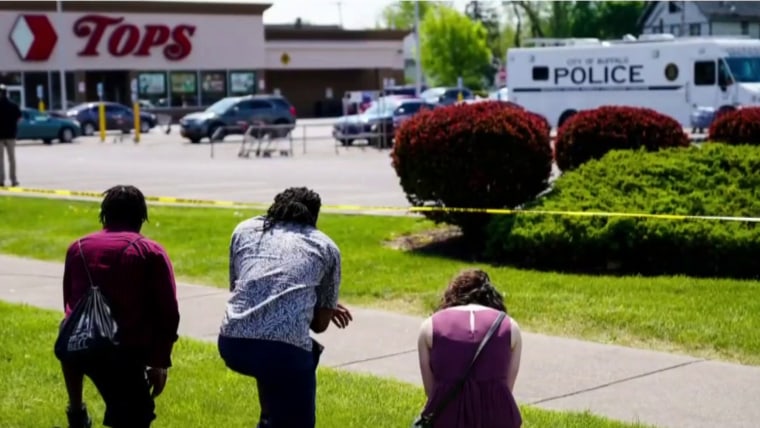Federal prosecutors charged Payton Gendron with multiple federal hate crimes offenses on Wednesday. Gendron is accused of killing 10 Black people and injuring three others in a racist attack at a Tops Friendly Market in Buffalo, New York, in May. The federal charges, which carry the potential for the death penalty, also include firearms violations. They come on top of counts of domestic terrorism motivated by hate and first-degree murder that he already faces from New York prosecutors, for which he has pleaded not guilty.
The idea of punishing crimes that are motivated by racial animus feels morally right. Racism is bad. Crime is bad. Crime, additionally motivated by racism, is doubly bad. The problem is, hate crime legislation may not be an effective solution. It’s a lot easier to identify what looks like racially motivated violence than it is to actually prove and prosecute it.
It threatens to encroach upon constitutional protections and — ironically — place value on the lives of victims according to their race, the opposite of what a reduction in hate should achieve.
Holding racist and hateful views, by themselves, cannot be criminalized; pure thought may not be punished under the U.S. Constitution. Instead, every criminal offense must prohibit some conduct. As long as you keep it to yourself, you can harbor evil thoughts of racism, sexism, treason, violence or even genocide.
In fact, the U.S. Constitution protects even more than racist thoughts. As long as it doesn’t incite imminent lawless action or constitute a threat, racist speech is protected speech. It’s deplorable. It’s poisonous. But it’s protected.
Enter hate crime legislation. Federal hate crimes are those committed on the basis of the victim’s perceived or actual race, color, religion, national origin, sexual orientation, gender, gender identity or disability. Most states also have hate crime laws that include some or all of these parameters.
Oregon became the first state to enact hate crime legislation when it passed the Hate Crimes Act in 1981. As Duke law professor Sara Sun Beale explained it nearly two decades later, hate crime laws are based on the need to “send a message” condemning bias crimes and reaffirming society’s commitment to equality and to the rights of the groups targeted by hate crimes. After all, crimes motivated by hate don’t just affect victims — they affect entire communities.
So there’s no question that the motive behind hate crime legislation is a noble one. But it’s an attempt to fix a problem that can’t be easily solved by legislation. In the process, it threatens to encroach upon constitutional protections and — ironically — place value on the lives of victims according to their race, the opposite of what a reduction in hate should achieve.
If a hate crime is straightforward, then it’s less constitutionally problematic. For instance, imagine someone assaults a person of another race and shouts racist statements about that person’s race during the assault. That’s an obvious situation where the criminal’s speech-plus-conduct has taken the speech outside the protected realm, and it can be criminalized.
But hate crimes, like other offenses, don’t always unfold in a straightforward way — and neither do their prosecutions. Consider, for example, the three Georgia men convicted in federal court in February for committing hate crimes and attempting to kidnap Ahmaud Arbery. (They were also convicted in a Georgia court of Arbery’s murder.)
The prosecutors used evidence that the defendants “had strongly held racist beliefs.” The government proved these beliefs by the defendants’ prior “social media comments and text messages to friends.” But those social media posts, text messages and other comments, while awful, were not made during the shooting. And most of them were probably constitutionally protected.
This raises a critical question on which reasonable minds might differ: If someone made a racist but constitutionally protected comment in the past, can you infer that everything they do ever after is motivated by racism?
Many will take the position: When people make racist comments, however long ago, and no matter the context, that person is a racist forever. And they will take a second step in assuming that any crime he ever commits against someone of another race is necessarily racially motivated.
But in a criminal prosecution, evidence of prior criminal or violent activity is generally inadmissible as evidence that the defendant committed the charged violent crime. It’s considered improper reputational or character evidence that convicts a defendant for what he did in the past rather than what he’s accused of doing now. And yet, despite that bedrock principle of evidence, one of the first things that investigators do in a hate crime prosecution is scour the defendant’s prior comments for displays of racism. (It’s true that those prior bad acts may be admissible to show someone’s motive, but that’s different from proving culpability in ordinary criminal cases.)
Some academics have also observed that hate crime legislation may violate the equal protection clause of the Fourteenth Amendment: “Hate crime laws seem to value the safety of certain victims above the safety of others” based on race. Imagine, for example, that some neo-Nazis attack a group of demonstrators consisting of white and Black protesters. Applying hate crime laws might provide for harsher punishment of certain individuals based upon the race of the victim.
In the South Carolina Law Review, Erica G. Safran notes that hate crime legislation opponents have challenged these laws on both First Amendment and the Fourteenth Amendment grounds. But the results have been uneven. The U.S. Supreme Court did strike down one local ordinance as unconstitutional because it attempted to outlaw protected speech. Generally, however, state hate crime statutes targeting crimes motivated by race or some other protected category have survived challenges.
If someone made a racist but constitutionally protected comment in the past, can you infer that everything they do ever after is motivated by racism?
Perhaps the greatest criticism of hate crime charges, though, isn’t one made explicitly: It’s one that’s evident from the frequency with which prosecutors decline to bring them.
Hate crimes are hard to prove. Normally, someone’s motive in committing a crime is not a necessary element for finding the person guilty. The law does care about intention — e.g. that you meant to steal from someone when you secretly took their money. But the law doesn’t care why you stole money; the prosecutor doesn’t need to show you did it to buy a Ferrari rather than feed your family. Hate crimes are an exception to that rule. For then, a prosecutor must prove that the crime was committed because of a motive of race-based or similar hatred.
Prosecutors like to win. So it’s no surprise that hate crimes are rarely prosecuted, especially where the underlying crime is a homicide that will likely land the defendant in prison for life anyway.
Indeed, existing criminal law is usually sufficient to punish the underlying crime. Wielding criminal law to combat racism might be using a legislative weapon to combat an elusive moral wrong when laws against murder, terrorism, firearms offenses and other crimes hate-filled defendants commit already impose severe penalties.
Source: | This article originally belongs to Nbcnews.com











